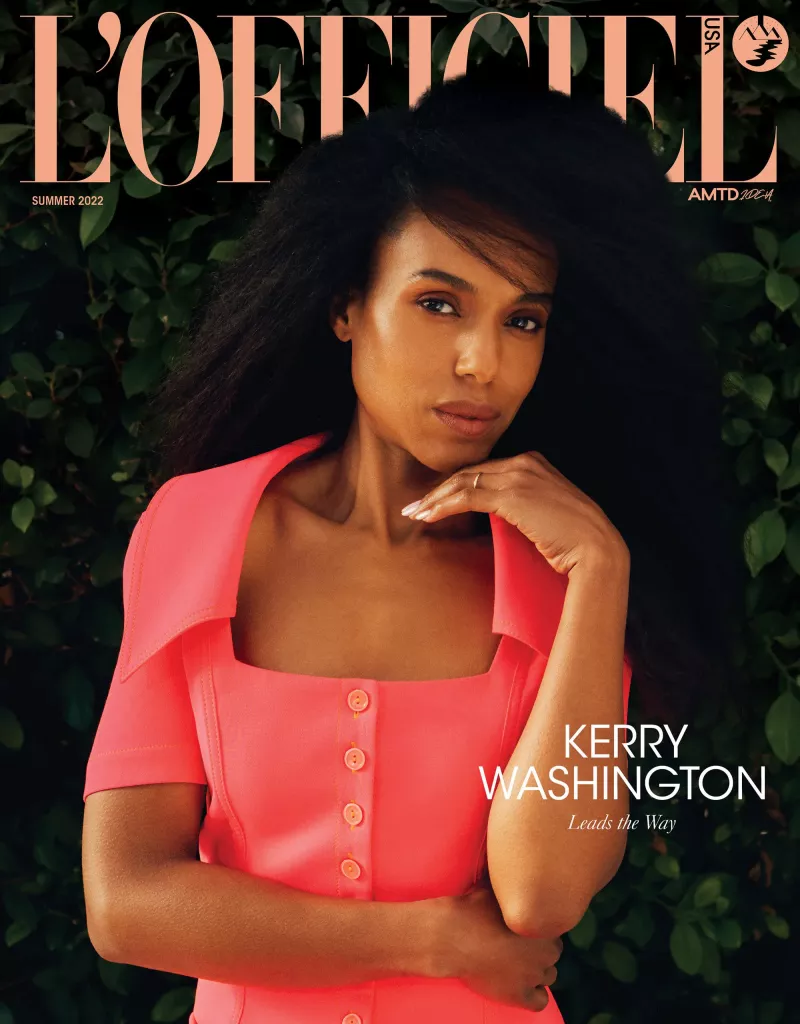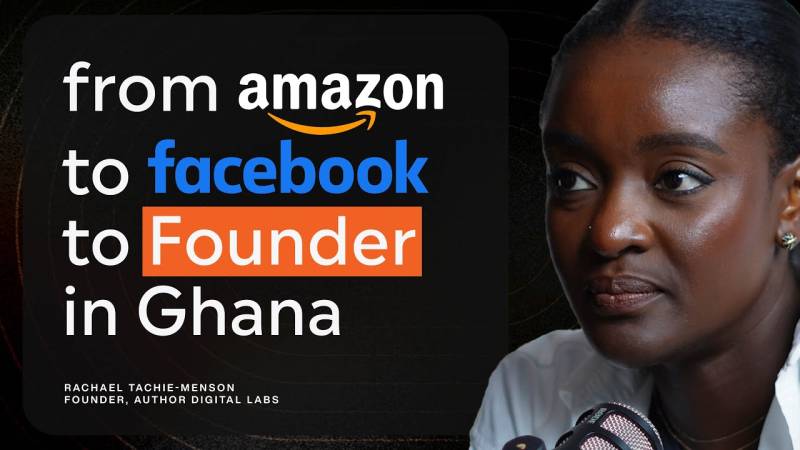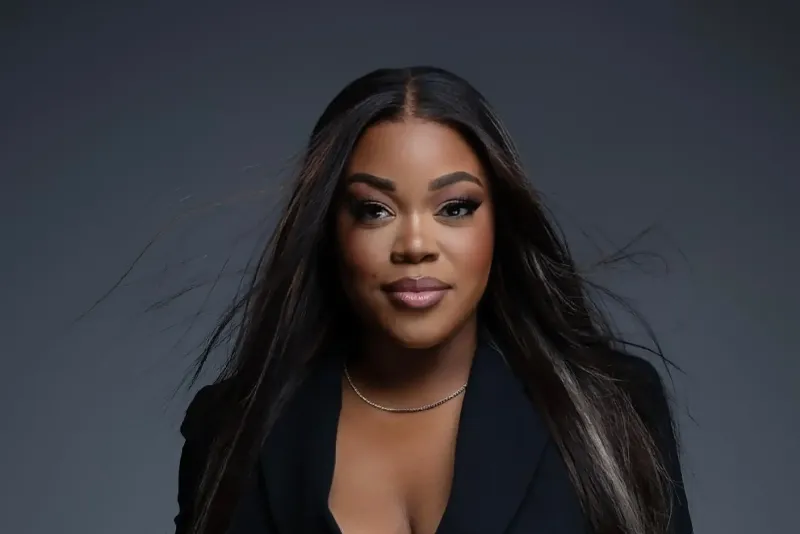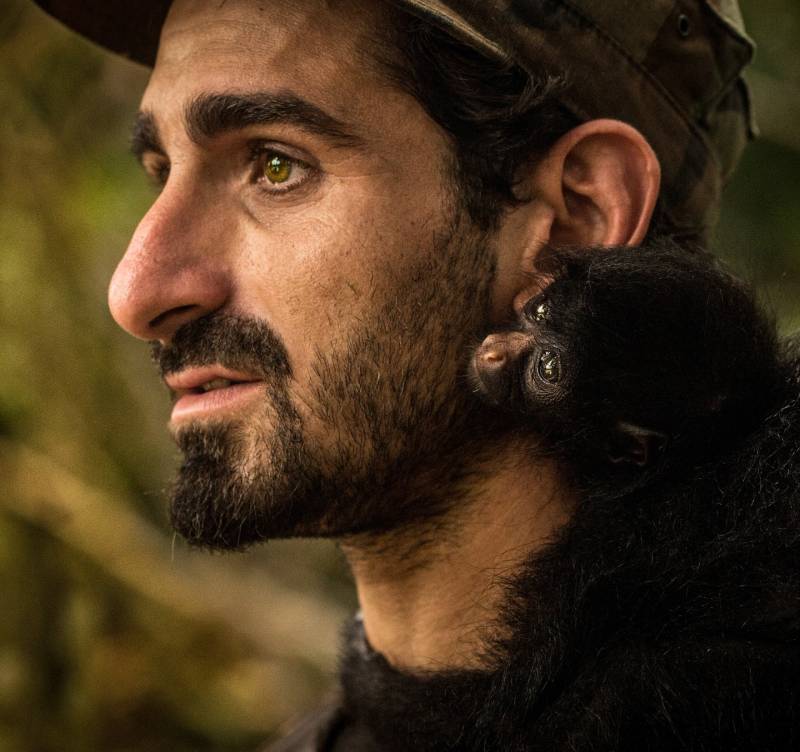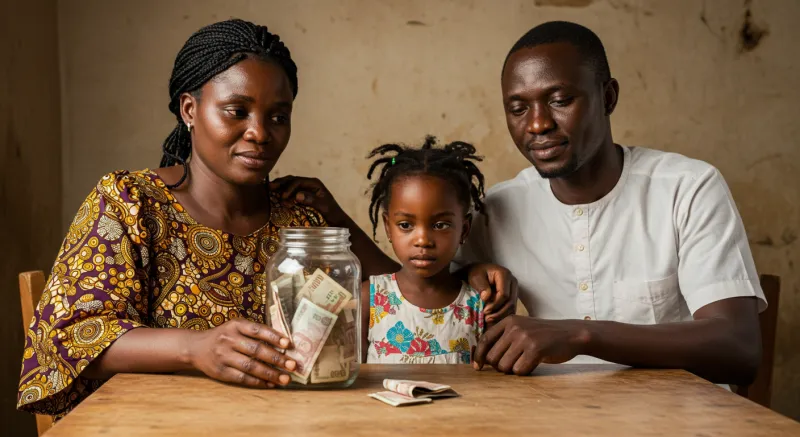With a blockbuster seven-season run on Scandal, Kerry Washington conquered network television. Now, with a full slate of new projects and a busy production company as committed to activism as she is, she’s ready for her next adventure.
If you want to catch Kerry Washington for a chat, you’d better be ready for her to multitask. “I hope you don’t mind if I eat while we talk,” she says cheerfully on a call in late April, “I’ve got about one break to do seven things.” Chances are, all of them are pretty important. Washington, who rose to fame as Olivia Pope, the superhero-esque political fixer with a thorny personal life on seven seasons of Shonda Rhimes’ hit Scandal, now finds herself in the plum position of seemingly being able to do close to whatever she wants. Luckily for the rest of us, what she wants to do is to make a difference.
An activist long before she was an actress, the Bronx-born Washington has marshaled her Hollywood connections and storytelling expertise to benefit all kinds of civil justice-minded organizations, from the Vision Into Power Cohort, a program to support grassroots organizations that empower marginalized groups with the Movement Voter Project, to speaking at the 2017 Women’s March, working with Time’s Up, and stumping for Stacey Abrams, Joe Biden, and Kamala Harris. At her production company, Simpson Street, the aim is to center typically sidelined characters in the projects she produces and stars in–projects, she says, “that feel new and fresh and upend the idea that there’s only one kind of person who deserves to be at the center of the story.”
For Washington, who was raised to celebrate the democratic process, staying involved is a no-brainer. “I have access to these communication skills, and all different kinds of resources, and I’m not the one who would benefit most from them,” she says. Her efforts haven’t gone unnoticed: Washington was named one of Time magazine’s 2022 people of the year in March. With upcoming projects ranging from blockbuster action films and YA-minded Netflix romps to buzzy legal dramas and a spate of new Audible projects, her star is only continuing to rise. L’OFFICIEL catches up with the supernova below.

ALESSANDRA CODINHA: Thank you for taking the time...as one of Time magazine’s 2022 women of the year, no less!
KERRY WASHINGTON: That was really surreal. I legitimately thought that my publicists were calling the wrong person accidentally. I was like “...this is Kerry Washington.” I was really proud because it was based on the work that we’re doing on the production side and on the civic engagement side, really elevating other people’s voices. To be honored for lifting and encouraging and bringing attention to other people who are doing important work…that’s the kind of honor that makes me feel really proud.
AC: Can you tell me about how you first got involved in activism?
KW: It’s been a really long journey for me. I come from a family of people who are really civically engaged—my parents took me for dinner when I turned 18 to celebrate the fact that I could vote. It was a real rite of passage. It was considered a privilege and a responsibility. So I think civic engagement has always been part of how I walk through the world. And in high school, I did a lot of activism around AIDS education and safer sex issues and LGBT issues, and in college around art funding and First Amendment rights issues. In 2016 I woke up the morning after the election and my character on Scandal, Olivia Pope, was trending on social media, because when a crisis happens, particularly in politics, people are like, Olivia Pope! You have to fix this! Everyone’s tagging me in this moment of real political upheaval and heartache and pain and fear, and I felt that at this moment I want people to know how much power they have. I don’t want people focusing on Olivia Pope; I want people focusing on their own agency and power to transform their communities and lives. So I really started putting more of my focus around voter engagement, voting rights, and voter education. Because I really feel like no matter who you are and what you care about you are able to have an impact if you show up.
AC: I loved that you produced that documentary, The Fight, about the ACLU lawyers... It’s really heartening to know there are such smart people working on the side of justice.
KW: Once you know they exist and the work that they’re doing, you’re just like, Okay! I can get up today.
AC: How do you like producing?
KW: I really love producing. When it’s hard, I’m devastated. [Laughs.] Because I care about it so much. So when it’s hard I’m like, What am I thinking? I should just be acting; this is so intense. But I care so deeply about the projects that we do. I’m always so inspired and motivated to come out on the other side. In some ways, I feel like Olivia Pope taught me how to be a producer. It’s just like being a fixer: you’re just there to make things better and right the wrongs and help people in the moments they need it the most. I love creating a space and a time where people love to show up and do what they love to do. Creating opportunities for grips and electrics and prop masters and actors and writers, and being a part of the team that creates this space where we say: do what you do, do it well, and we’re all going to do it together. Part of wanting to be a producing team was not only to make things that we’re excited about and love and are proud of but also that we’re excited about how we made them, in an environment that’s filled with respect and mutual admiration and hard work but also joy.
AC: How do you pick projects?
KW: Our ethos at Simpson Street is to gravitate towards projects that upend the idea of otherness by centering protagonists that may be marginalized or overlooked by society as a whole. Everyone is the lead of the story of their own life, or their own narrative. So I guess we gravitate toward stories with unlikely protagonists—not unlikely to me, but unlikely in the larger culture.
"I don't want people focusing on Olivia Pope; I want people focusing on their own agency."

AC: I watched your 2016 film Confirmation after the Supreme Court Nomination hearings for Judge Ketanji Brown Jackson. What was the experience like playing Anita Hill? Did you spend a lot of time with her?
KW: I did; she became a good friend. She’s just such a hero, such a rockstar. And she sacrificed so much. She really sacrificed her personal life for the movement. One of the most surreal moments of my career was doing the sexual harassment training that productions do before the shoot for Confirmation began. It was like, this woman is the reason there are these trainings now. She really did transform culture. She changed our language; she changed our ideology. The number of women who went into politics and public service because of what she sacrificed and because she came forward is so inspiring.
AC: Tell me about The School of Good and Evil. From what I can tell you’re basically a cooler Glinda the Good Witch. Is that off base?
KW: You are barking up the correct tree. [Laughs.] I play Professor Dovey, who is the dean of the School for Good, and it was so fun because I’ve never worked with Charlize [Theron, who plays the former dean for the School of Evil], and I love her. I adore her, and it was great to be able to spend some time together and connect as actors and as moms and as artists. I remember one day we were on set and I was like “Ooh, everybody, it’s 11:11, make a wish!” I do that all the time. And she was like: “Oh my god. You are this character.” [Laughs.] “Like, it’s kind of gross. You don’t drink coffee, and it’s 11:11, I just can’t; I can’t.” We had a lot of laughs about that. We were kind of playing our secret inner selves. It was really fun! I’m really excited about the film. Even though it’s not a Simpson Street production, it does challenge the notion of what good and evil are, and who the princesses should be and who the witches should be and who gets to be at the center of the story.
AC: I’ve heard from actors before that it’s more satisfying to play the bad guys, which you got to do in The Prom. Do you have a preference?
KW: To me, it’s all fun. I really love my job. I really like when characters have a little bit of both because that to me is more the reality of humanity: no one is all good; no one is all bad. I remember when I was reading the pilot script for Scandal, and you have this badass superhero woman who seems to know all and do all and be all, and then in the last ten minutes of the pilot, you’re like, She’s SLEEPING with the PRESIDENT? And he’s MARRIED?! WHAT?! [Laughs.] That complexity to me is really exciting and fun.
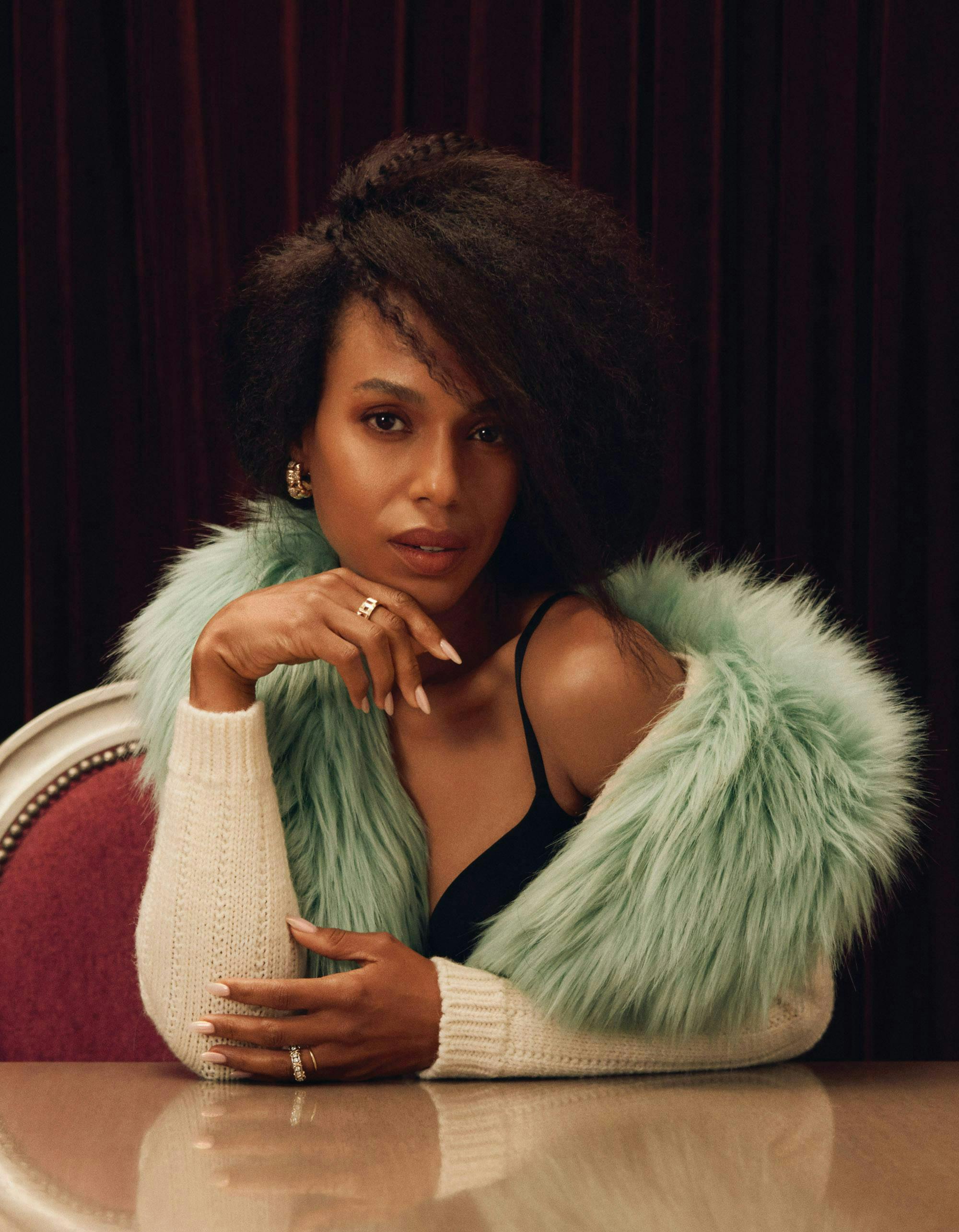


AC: You’ve mentioned your character from Scandal a few times. It’s nice that you’re not sick of talking about Olivia Pope.
KW: I’m not! Being on that show changed everything about my life! It also in a lot of ways transformed the landscape of television. It was so historic in the nature of who the lead of the show was, [Ed. note: When Washington was cast in Scandal, she was the first Black woman to lead a network TV drama since 1974, 38 years prior.], and the way that we use social media, but also in ways that it revolutionized professional dressing for women. So much of it was transformative. Even in my personal life, in the years that I worked on Scandal, I got married, I started a family, and I bought my first house. It’s a big chapter of my life. I’m really proud of the career that I had before Scandal; I’m really proud of all of the incredible films and the legacies that I’ve been a part of. But Scandal’s not just a great chapter, it’s a long one! So it’s hard to ignore.
AC: Did you always want to be an actress?
KW: My mother would tell you that I was always a dramatic child. [Laughs.] I always loved the arts, and I loved performing, but I didn’t think of this as a real job. I didn’t grow up around show biz people. My mother’s a professor and my dad’s a realtor, so I was supposed to have a “real” job. But then two things happened in college; one was that I got an acting scholarship for George Washington University. So for the first time, something really shifted for me in that I was like, Oh, acting is actually paying for my education; it’s paying for me to live here and study. It felt like a seedling for an idea that I could sustain myself through my art. And then I did a conservatory program halfway through college, and we started learning about the business of acting, and even though I was part of a union because of work that I had done in my teenage years, I started to think about the fact that there were unions for actors. I knew enough from having a mother who was a retired teacher that unions were for working folk—longshoremen and factory workers and nurses and teachers, people with “real” professions. But I started to understand that I could make a living as an actor and be a worker among workers. That being an actor didn’t require that my goal be to become famous. Because I didn’t want to be famous; I didn’t really think that I could be famous. So it shifted my idea of what the goal had to be, and that’s when I thought I’d give it a try.
AC: You’ve done a couple of Broadway plays— David Mamet’s Race in 2009, and Christopher Demos-Brown’s American Son in 2018. How was that?
KW: I come from a theater background, growing up in New York and working with theater companies and acting on the stage in college, so that for me is the purest form of what we do. It’s also the hardest and most rewarding. I’d love to be able to do what Denzel Washington has done in his career where he kind of goes back to Broadway every three to five years, just to go back and make sure his tools are all still in check and to get that kind of immense fulfillment and gratification that you get from being in the room with the people you’re telling stories to.
"I didn't want to be famous; I didn't really think that I could be famous."

AC: I saw that you directed an episode of the upcoming series Reasonable Doubt, and previously you’ve directed episodes of Scandal and Insecure. How do you like directing?
KW: I really enjoy it. I am excited that it’s another way that I get to express myself and collaborate. I’m not ready to give up the other things for it, but I’m excited to keep learning.
AC: I bet it really informs acting, too, being on the other side of the camera.
KW: Agh! I’ve always thought that there should be a day on set where every actor has to do other people’s jobs. It would be incredibly inefficient, but you learn so much when you step into the shoes of another crew member and think outside your own area of expertise. And for actors especially, it would be so great for every actor to try and direct—and for directors to try and act! There’s just so much to learn.
AC: What are you working on next?
KW: We have two series in production right now. One, Reasonable Doubt, has been announced, and the other hasn’t, but I’m excited to announce it when I can. And then this summer I’ll be shooting Shadow Force, which is a big, exciting action film, so I was also grilling Charlize every day like: so, how many hours do you train? Because she’s done so many of these and she’s so frickin’ good at them. So she’s actually been really helpful in terms of preparation. But it’s a giant action film at Lionsgate with me and Omar Sy, who’s just so delightful. It’s a really fun film.
AC: Is this your first action role?
KW: I was in Mr. and Mrs. Smith. I had to do some stunts and climb a mountain with Angelina [Jolie]. We were on this giant wall they’d built to look like a mountain. I’d enjoyed it and always felt like I’d love to come back and do more of this, so here I am! It is so cool because my schedule lately is like, I’m in the edit room for two hours and then I’m in fight training for two hours and then I go to set for another show and then back to fight training or a workout.
AC: Are there any dream projects or roles for you out there?
KW: I feel really passionately about the projects we have on our slate, and the things we have in development, but there’s not like that one role out there. The actors that I admire and look to the most, the people who’ve been lighthouses for me, are the ones who’ve been on the adventure of their career, and who allowed themselves to try new things and have vision, but also take risks and be adventurous. I think about Diahann Caroll and Rita Moreno, and Barbra Streisand, Jane Fonda, and Cicely Tyson. It’s that ability to reinvent yourself and stay creatively curious that inspires me the most. I want to be surprised in life: I want to be challenged and inspired. I think, as an artist, when I let myself be in that space is when I let other people have that experience too. You’re inspired watching something when you know the artists who made it were inspired too. There’s ambition for sure in wanting to continue to break new ground and challenge myself in new ways, but I also try to embrace the humility that I may not know what’s next. I may not.
AC: That sounds like the best place to be actually: let go and let God but also do the best work you can.
KW: Yeah, that’s right. Show up, and then say, “Alright! I’m not in charge.”
